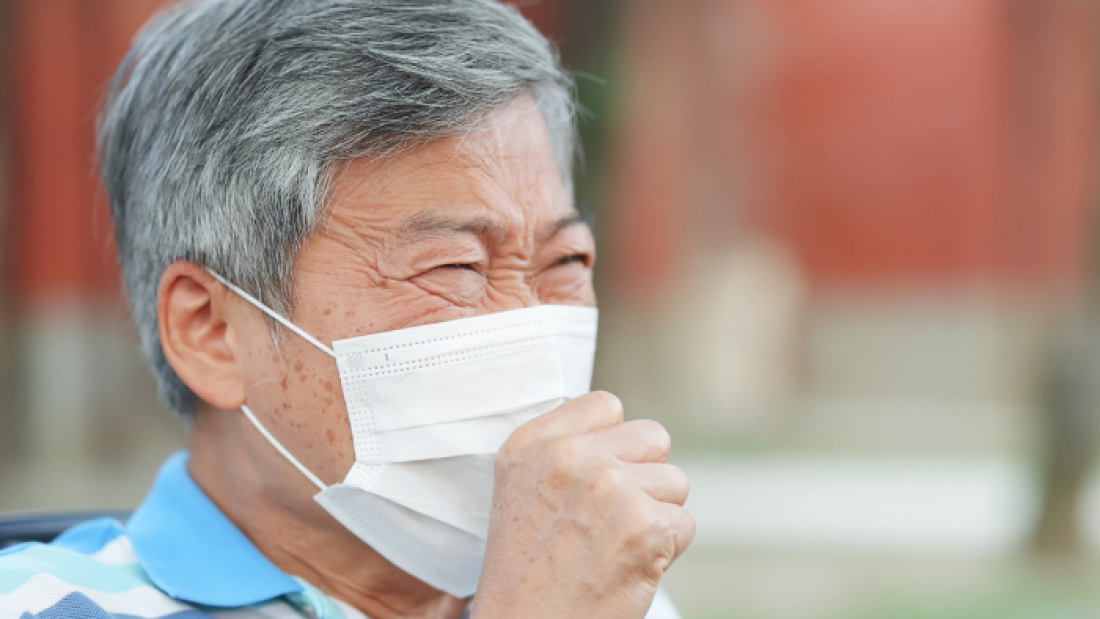Respiratory Syncytial Virus (RSV) is a common virus that infects the respiratory tract1, often causing mild, cold-like symptoms. While it frequently affects children2, RSV can lead to severe illness3 and even hospitalization in older adults4. Understanding why older adults are at higher risk and what can be done to protect them is crucial. Let’s dive into the factors that make older adults more vulnerable to RSV and how they can safeguard their health5.
Why Are Older Adults at Higher Risk?
- Weakened Immune System:
As we age, our immune systems naturally weaken6. This decline in immune function, known as immunosenescence, makes it harder for the body to fight off infections like RSV 7. Older adults may not mount as strong an immune response, allowing the virus to take hold more easily.
- Underlying Health Conditions:
Many older adults have chronic health conditions such as chronic obstructive pulmonary disease (COPD)8, heart disease, or diabetes. These conditions can exacerbate the effects of RSV, leading to more severe respiratory symptoms and complications like pneumonia9.
- Decreased Lung Function:
Aging also brings changes to lung function. The lungs lose some of their elasticity, and the muscles involved in breathing can weaken10. This makes it harder for older adults to clear mucus and fight off respiratory infections, increasing the risk of severe RSV.

Symptoms to Watch For:
In older adults, RSV can present with more severe symptoms compared to younger, healthier individuals. Key symptoms include11,12:
– Persistent cough
– Wheezing
– Shortness of breath or difficulty breathing
– Rapid breathing
– Bluish color around the mouth or fingertips (a sign of low oxygen levels)
– Fatigue and weakness
– Fever (though not always present in older adults)
Complications in Older Adults
For older adults, RSV can lead to serious complications such as13:
Bronchiolitis: Inflammation of the small airways in the lungs, leading to breathing difficulties.
Pneumonia: An infection of the lungs that can be life-threatening, especially in those with underlying health conditions.
Exacerbation of Chronic Conditions: RSV can worsen existing conditions like asthma, COPD, and heart failure, requiring hospitalization and intensive care.

Preventive Measures for Older Adults
- Good Hygiene:
Maintaining good hygiene is crucial in preventing the spread of RSV. This includes regular handwashing with soap and water, using hand sanitizers, and avoiding touching the face, especially the nose and mouth.
- Avoiding Crowded Places:
During RSV season (typically fall to spring), it’s wise for older adults to avoid crowded places where the virus can spread easily. This includes public transportation, shopping centers, and social gatherings.
- Vaccination and Antiviral Medications:
There are new innovative vaccines for RSV in older adults, and staying up-to-date with flu and pneumonia vaccines can help reduce the risk of respiratory complications. In some cases, doctors may prescribe antiviral medications to prevent or treat RSV in high-risk individuals.
- Healthy Lifestyle:
Maintaining a healthy lifestyle can strengthen the immune system. This includes a balanced diet rich in fruits and vegetables, regular exercise, adequate sleep, and managing chronic health conditions effectively.
Conclusion
RSV poses a significant threat to older adults due to their weakened immune systems and the presence of chronic health conditions. By understanding the risks and taking preventive measures, older adults and their caregivers can reduce the chances of severe RSV infections. Staying informed, practicing good hygiene, and seeking medical advice promptly at the first sign of symptoms can make a significant difference in protecting the health of older adults during RSV season.
Currently, FOMAT is participated in various RSV clinical trials, involving new vaccines and innovating new medications that can potentially become the primary treatment for RSV. If you or a loved one has respiratory symptoms, contact your doctor and discuss the possibility of participating in our clinical trials.
Clinical trials are crucial in developing vaccines and new medications to combat RSV, especially for vulnerable populations like older adults. These trials involve rigorous testing to ensure the safety and effectiveness of potential treatments. Participants in these trials contribute to medical advancements that could lead to better prevention and treatment options. Ongoing research and trials aim to find innovative solutions to reduce the impact of RSV. By participating in or supporting clinical trials, we can help bring new vaccines and medications to those who need them most.

